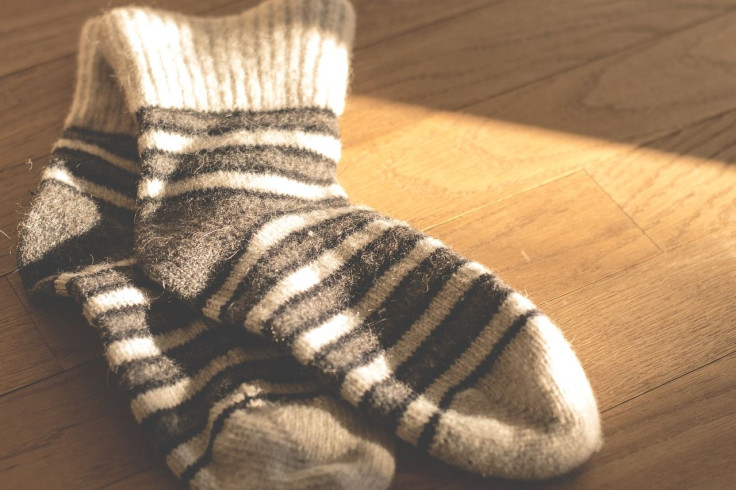Why Do Mosquitoes Like You More Than Others? Dirty Socks May Hold The Answer

Why do some people get attacked by mosquitoes, while others are left without a single bite? It’s a question that’s puzzled scientists, but a new study hopes to soon find the answer.
Researchers are in the process of determining if genetics affect whether mosquitoes are attracted to you or not, Scientific American reports. The research team plans to gather already-worn socks from 200 sets of identical and non-identical twins. Next, they plan on placing all of the socks in a wind tunnel with mosquitoes.
Read: More U.S. Counties Have Potential Zika-Carrying Mosquitoes Than Previously Thought, CDC Reports
While socks and mosquitoes sound unrelated, there’s of course science behind the research team's decision to study used footwear. They hope to discover if the odors in the socks produce attractive or repellent chemicals.
“We know very little about the genetics of what makes us attractive to mosquitoes,” lead research James Logan told Scientific American. “We hope this study will give us more insights into the mechanisms that help change our body odors to make us more or less attractive to mosquitoes.”
Read: Malaria Reaching New Heights Due To Climate Change; Warm Temperatures Help Mosquitos Travel Higher
Previous research suggests that genetics account for nearly 85 percent of the reason some of us get bit by mosquitoes more often than others, WebMD reports.
“If we can identify important genes, perhaps we could develop a pill or medication that would allow the body to produce natural repellents to keep mosquitoes away,” Logan said.
Logan and his colleagues chose to recruit twins for their study because of their prior research on a small group of identical and non-identical twins. The findings revealed mosquitoes were more similarly attracted to identical twins rather than non-identical.
It will likely be some time before we figure out a way to keep the pesky insects from sucking our blood. So for now, the best bet is to follow these recommendations from the Centers for Disease Control and Prevention: wear long-sleeved shirts and long pants, stay in places that have air conditioning or windows with screen doors, and use an insect repellent that meets FDA guidelines. Repellents suggested by the Food and Drug Administration have active ingredients, such as DEET or Picaridin, that have been proven to be safe and effective at warding off insects.
See also: Why Do Mosquitoes Bite Me? Science Explains Why Bugs Are Attracted To Certain People
Published by Medicaldaily.com



























